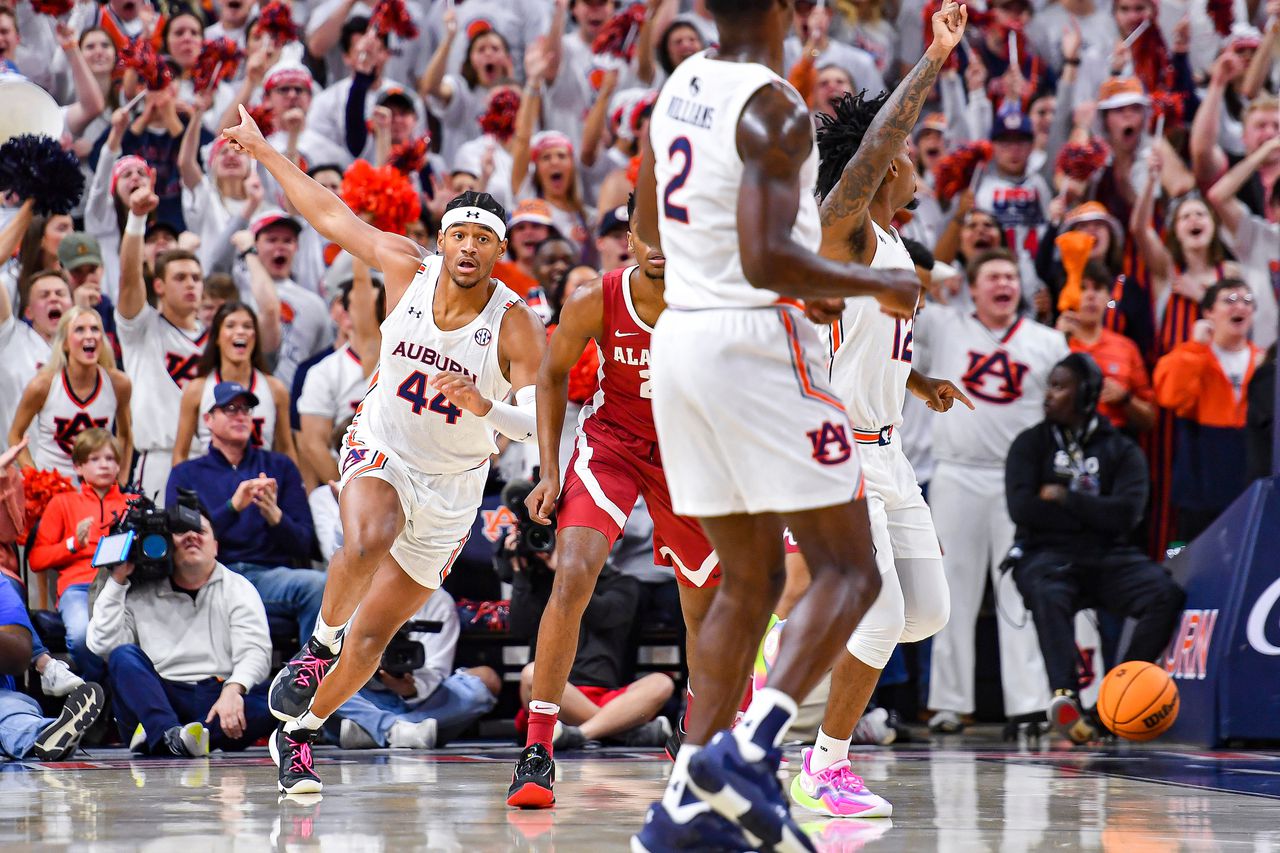Alabama AD explains how NCAA selection committee seeded Auburn in Birmingham
When Auburn’s name flashed on the CBS broadcast Sunday evening and showed the Tigers as the No. 9 seed in the Midwest Region, it represented a fortunate turn of events for Bruce Pearl’s team.
Auburn, which has persevered through a rollercoaster of a season on the court, finally “caught a break,” as the ninth-year head coach put it this week. The Tigers landed Birmingham as their opening-week site for the NCAA Tournament, meaning a short trip up the road and in their own backyard as part of a pod that also includes eighth-seeded Iowa (Auburn’s first-round opponent) and top-seeded Houston (the No. 2 overall seed in the field of 68).
Read more Auburn basketball: Playing the field: Auburn leaning experience against historically tough schedule as it enters March Madness
Houston’s Kelvin Sampson on pairing with Auburn in Birmingham: ‘Maybe we should have been a 9-seed’
What you need to know about Iowa, Auburn’s opening-round NCAA Tournament opponent
Birmingham was always a possibility, but as Auburn trudged through the back end of its season with just four wins in its final 13 games, with several narrow losses during that stretch, the prospect of playing close to home started to fade. As luck had it, though, that’s exactly where the Tigers wound up after falling to a No. 9 seed.
How, exactly, did Auburn manage that favorable draw? Well, it wasn’t part of any grand conspiracy or under-the-table deal, according to Alabama athletics director Greg Byrne, who serves on the NCAA Tournament selection committee.
“I know there’s been a lot of discussion about the fact that Auburn’s playing in Birmingham,” Byrne said on an episode of The Crimson Drive that will air Wednesday. “…I know sometimes that there’s a theory out there that, well, the committee’s secretly in the back room putting together deals and saying, ‘Oh, let’s put this team here; that will be a really good matchup,’ and those different things. It doesn’t happen. It literally does not happen.”
Byrne explained that Auburn getting placed in Birmingham was just a matter of how the bracket shook out Sunday when the committee was putting everything together. There’s a certain set of rules and parameters that committee members take into consideration after seeding teams 1 through 68 when it comes to bracketing — including distance from campus, what sites are available when a given team’s name comes up for discussion.
“When it came to Auburn getting bracketed to Birmingham, that’s where it fit in the rotation at the time,” Byrne said. “And with the options that were available, that was the one that made the most sense, and so that’s how they ended up there.”
RELATED: Goodman: March Madness? In Birmingham, prepare for full-on crazy
It just so happens things worked out well for Birmingham as a host city. Along with landing Auburn as a nine-seed in the Midwest Region, and the subsequent pairing with No. 1 seed Houston, the city will also host the tournament’s top overall seed, Alabama, in the South Region pairing at Legacy Arena. The other teams rounding out the site: No. 8 Maryland and No. 9 West Virginia from the South Region, plus the winner of Tuesday’s First Four game between 16-seeds Texas A&M-Corpus Christi and Southeast Missouri State; then 16th-seeded Northern Kentucky in the Midwest Region to join Auburn, Iowa and Houston.
“Understandably, everybody has different thoughts, and people love talking about it,” Byrne said. “That’s what makes this thing so special, and it’s kind of weird that I’m even sitting here talking about that as the AD at Alabama, but I thought the background would be helpful for people to understand. It’s a really interesting process. I’m honored to be a part of it, and I’ve got three more years after this year to still be a part of it.”
Tom Green is an Auburn beat reporter for Alabama Media Group. Follow him on Twitter @Tomas_Verde.
